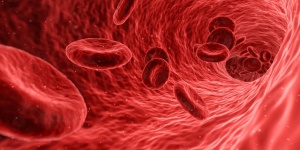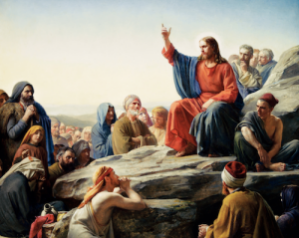Perimeno
What is your take on the scriptural viewpoint on the prohibition on blood as stated in Acts 15?
Since it has become apparent to me that the WTBTS has missed the mark on many scriptural issues because of their dogged defense of 1914, 1918 et al., I have to ask your scriptural viewpoint on the prohibition on blood as stated in Act 15 and other pertinent places in scripture. I have always felt that the societies viewpoint was well supported scripturally, but at this point I find myself questioning everything. What is your take on this subject? I don't recall seeing you weigh in on this. If you have, I have missed it. Again, I would value your response. Please support your reply scripturally. Thank you in advance.
In the book of Acts we are told that the holy spirit directed the apostles and older men to instruct the brothers in the various congregations, "not to trouble those from the nations who are turning to God, but to write them to abstain from things polluted by idols and from fornication and from what is strangled and from blood. . . For the holy spirit and we ourselves have favored adding no further burden to you, except these necessary things, to keep abstaining from things sacrificed to idols and from blood and from things strangled and from fornication. If you carefully keep yourselves from these things, you will prosper. Good health to you! Acts 15:19,20,28,29.
This directive became necessary because many people of the nations had become believers and some Jewish Christians, notably those of the sect of the Pharisees in Judea, particularly the Jerusalem congregation, were causing troubles by insisting that those of the Gentiles needed to get circumcised and to observe the law of Moses the same as the Jews had been under. They took it upon themselves to spread these personal views of theirs as far away as Antioch, Syria and Cilicia, where the apostle Paul and Barnabas had been successfully preaching. (Acts 15:1,5) Although seemingly zealous for true worship, these troublemakers did not have Jehovahs view on the matter, and so it became necessary to deal with the issue by the brothers in the Jerusalem congregation where this problem arose. Thus the ruling on these necessary things as recorded in Acts. Acts 21:25.
The command to abstain from blood carries the same weight as abstaining from things polluted by idols and from fornication and from what is strangled. It obviously means more than simply not thinking about it, talking about it, writing about it, or touching it, as some have tried to argue. Others may agree that eating blood would be wrong but that is not the same as accepting a blood transfusion. To counter that argument the illustration has often been used about a physician telling his alcoholic patient that for the sake of his diseased liver he must abstain from alcohol. Would that mean that he is not to drink any alcohol but it is quite alright to infuse it directly into his veins? Is this argument valid? Consider also the command to “keep abstaining from things sacrificed to idols," and then look at what the apostle Paul says regarding such foods. Did he understand it to mean that Christians must abstain from eating foods offered to idols? (Acts 15:29; See 1 Corinthians 8:1-10)
What is the intent behind the command to abstain from blood? What is Jehovahs view on the matter? Nothing in all that he commands is he withholding from us anything good or beneficial, for after having listed those necessary things the holy spirit and those ruling on this issue concluded by saying: If you carefully keep yourselves from these things, you will prosper. Good health to you! (Acts 15:28,29) Did Jehovah in his command to abstain from or avoid blood (Amplified Bible), also include its use for saving a persons life, such as by a blood transfusion, perhaps resulting in "good health" to the patient?
Having God's view on the use of blood is not about analyzing the definition of some words, such as "abstaining" or "avoiding." (2 Tim. 2:14) Rather, it is about accepting God's view on the sacredness of life, and how that life is symbolized by the blood. This is demonstrated by what God told Noah, when for the first time he permitted man to slaughter animals for food: "Every moving animal that is alive may serve as food for YOU. As in the case of green vegetation, I do give it all to YOU. Only flesh with its soulits bloodYOU must not eat. And, besides that, YOUR blood of YOUR souls shall I ask back. From the hand of every living creature shall I ask it back; and from the hand of man, from the hand of each one who is his brother, shall I ask back the soul of man. Anyone shedding mans blood, by man will his own blood be shed, for in Gods image he made man.'" (Gen. 9:3-6) God considers all life as sacred, human as well as that of animals. The life belongs to God who gave it! (Eccl. 3:19-21; 12:7; Ezek. 18:4) Therefore, although man was now permitted to kill animals for food, Jehovah required that the life of the animal, symbolized by the blood, be returned to him by pouring the blood on the ground. The only use of blood sanctioned by God was the sacrificing of an animal on the altar, and in that way offering the life to God. (Gen. 8:20,21) The command given to Noah has always been binding on all mankind everywhere! The life of an animal is not to be disrespected, and the blood is not to be treated as mere water. Lev. 17:13,14; 23:12; Deut. 12:23; Prov. 12:10.
In his Law to the nation of Israel Jehovah further explained the sacredness of life, and the reason behind his prohibition against anyone eating blood. “Life is in the blood, and I have given you the blood of animals to sacrifice in place of your own. That's also why I have forbidden you to eat blood.” (Lev. 17:11,12; CEV) That is very simply stated, is it not? The blood of an animal could save a person's life, not by eating the blood but rather by the animal dying in place of the person, atoning for his sin as the apostle Paul explains: ”Yes, nearly all things are cleansed with blood according to the Law, and unless blood is poured out no forgiveness takes place”. (Heb. 9:22) Jehovah cannot simply dismiss sin as if sinning on a persons part does not matter. Sin always has consequence! The perfect man Adam died because of his sin. (Rom. 5:12) Therefore, in his Law through Moses Jehovah made the provision that if any of his people became guilty of sin he would accept the life of an animal―symbolized by the blood―instead of the sinner. Yes, the blood of the animal saved the persons life quite literally.
Man was created in God's image and therefore Jehovah values the life of a man more than that of any animal, even as Jesus stated: "All considered, of how much more worth is a man than a sheep." (Gen. 1:27; Matt. 12:10-12) God does not desire anyone to die, not even the wicked, as he assures us: ’I do not take any delight in the death of someone dying’. (1 Cor. 15:56; Eccl. 7:20; Ezek. 18:23, 32; 2 Peter 3:9) What about today? Would Jehovah condemn a person for having his life saved by means of blood, not from an animal that was slaughtered on his behalf, but provided for him by another person? Is the blood of an animal worth more than the blood of another human when it comes to preserving a life? Did Jesus not provide his own blood in our behalf so that we may live, not just for a short time but forever? (Matt. 12:7; Heb. 9:11-14, 22) Is not the whole intent of God's law on blood about saving lives, which the blood represents? compare Matthew 12:7; 23:23,24.
When discussing blood transfusions, in support of their argument the Society often quotes the case of David refusing to drink the water that three of his mighty men brought him at great risk to their lives. The book Keep Yourselves In God's Love, chapter 7, Do You Value Life as God Does, says: "David, 'a man agreeable to [Gods] heart,' grasped the principles behind Gods law on blood. (Acts 13:22) On one occasion when he was very thirsty, three of his men forced their way into the enemy camp, drew water from a cistern, and brought it to him. How did David react? 'Shall I drink the blood of the men going at the risk of their souls?' he asked. In Davids eyes, the water was, in effect, the lifeblood of his men. So despite his thirst, he 'poured it out to Jehovah.' 2 Samuel 23:15-17." (Published by the Watchtower Bible and Tract Society, 2008)
Can we quote the above account as proof of one of God's faithful servants being against the use of "blood" to save a life? Obviously, it was not the men's blood that David refused to drink! It was simply water! Then why did David refuse to drink the water? Because if David had accepted the water, drawn from his boyhood cistern that was now under the control of the Philistine enemy, his three loyal and brave men would likely have returned for more the next time David expressed his yearning to drink from that water source again. But the next time they may have fallen into the enemy hands and not returned. By pouring out the water David showed that he was not willing to have any of his men sacrifice themselves simply so that he could drink from his favorite well, "the cistern of Bethlehem that is at the gate." It had nothing to do with drinking blood, but everything with his respect for their life.
What if in our own zeal to obey Jehovah we become guilty of the same misguided zeal as those of the sect of the Pharisees, who compelled others to comply with what they perceived were necessary things, such as circumcision, or keeping the Sabbath? (compare Mark 3:1-6; Luke 14:3-6; Acts 15:5) It is disturbing that the Society's Governing Body members have taken it upon themselves to interject themselves in the life and death decision of God's servants who face the critical choice of accepting or not accepting a blood transfusion. They have made themselves masters over our faith to the point where there is no room for us to exercise our own conscience. Of course, they claim that obeying God in this regard is not a matter of conscience. And yet, they have been forced from time to time to re-evaluate what constitutes abstaining from blood as prescribed in Acts 15. Does it apply only to the whole blood as it cruises through the veins or does it also refer to the many fractions that blood can be separated into? In their pharisaical attempt to define every aspect of Gods laws they have found it necessary over the years to periodically change their view on what is and what is not acceptable from God's standpoint, as medical science keeps advancing in breaking down and using the many blood components in finding new cures in the sustaining and prolonging of life.
Life originates with God and therefore it is sacred! Blood is sacred because it represents that life, “for the soul of every sort of flesh is its blood by the soul in it." (Lev. 17:14; Gen. 9:3-6; Eccl. 12:7) That is why the blood belongs to God. As already discussed, God accepted the blood of a slaughtered animal to save the life of a sinner. DOES GOD CONSIDER IT A SIN TO USE BLOOD, WHICH BELONGS TO HIM, TO SAVE A LIFE, WHICH ALSO BELONGS TO HIM AND IS SACRED, WHEN NO LIFE IS TAKEN IN ORDER TO PROVIDE IT? Whatever your own view on this matter, the command to abstain from blood when it comes to blood transfusions, is ultimately a decision that everyone must make for himself. It is a matter between the person and Jehovah alone; especially when it becomes a matter of life and death for the person involved, for it is ultimately Jehovah we are accountable to. The life of all creatures, which the blood represents, belongs to God. Therefore it is God's view that matters, and it is only he who has the authority to interpret and enforce, or not enforce it. When it comes to interpreting his law he has demonstrated in the past that his thoughts are not necessarily our thoughts. Isaiah 55:8,9; see 1 Samuel 14:31-34; 21:1-6; Matt. 12:1-4.
We can be certain that all God's laws are for our health and benefit. There have been those among God's people who have accepted, for the above reasons, a blood transfusion because of a medical emergency, and have prospered afterwards not only with good health, as mentioned in Acts 15, but also continued to do well spiritually and helping their families to worship Jehovah. I personally know of two such cases. How presumptuous it would be to judge our brothers on matters of life and death, as Paul tells us: Who are you to judge the house servant of another? To his own master he stands or falls. Indeed, he will be made to stand, for Jehovah can make him stand. . . If we live, we live to Jehovah, and if we die, we die to Jehovah. Therefore both if we live and if we die, we belong to Jehovah. . . But why do you judge your brother? Or why do you also look down on your brother? For we shall all stand before the judgment seat of God. . . So, then, each of us will render an account for himself to God. Rom. 14:4,7,8-12.
Yes, each one of us is responsible for himself to Jehovah. If any teaching on the part of our Governing Body leaders results in the untimely and unnecessary death of one of God's sheep, just acknowledging at some future time that they were wrong, and that "the light gets brighter," will not cut it with Jehovah. Responsibility and accountability go hand in hand with teaching! Jehovah has promised that he will hold teachers accountable for any harm that comes to any of his people as a result of what they taught in his name. The principle applies: "His blood (life) I shall ask back from your own hand." (Ezek. 3:18; 34:9,10; James 3:1; Heb. 13:17) God tells us that "each one will carry his own load," and that "I will give to you individually according to your deeds." Galatians 6:5; Revelation 2:23.



